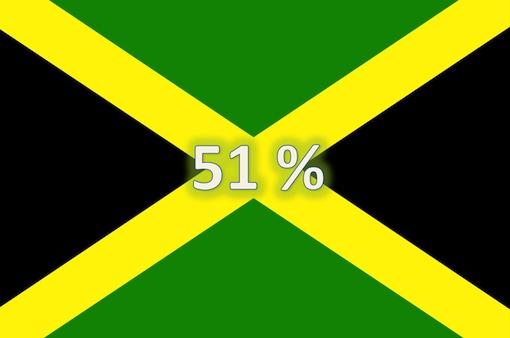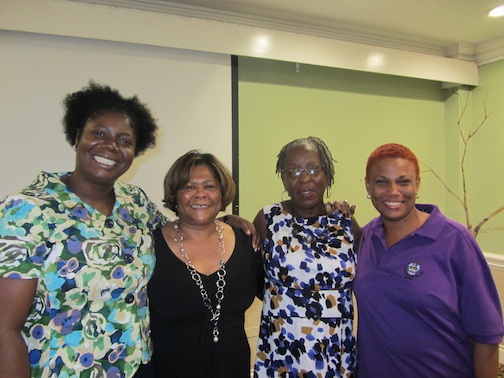By Marcia Forbes, PhD
CJ Contributor
The 51% Coalition – One Year Later
About 15 organizations representing a broad cross-section of Jamaican society, including NGOs, the government and the private sector turned out to participate in a forum hosted to celebrate the first anniversary of the 51% Coalition: Women in Partnership for Development and Empowerment through Equity.
This coalition, whose primary thrust is to increase women’s participation in decision-making at the highest levels, now boasts membership of 11 groups, including the Private Sector Organization of Jamaica (PSOJ) and the University of the West Indies’ Institute for Gender and Development Studies.
Linnette Vassell, one of the key figures behind the work of the 51% Coalition, outlined the year’s work toward achieving the targeted mix of no more than 60% and no less than 40% representation by any gender on public boards, commissions and other bodies. Achievements include:
- Public education and advocacy on quotas, including to the Jamaica Stock Exchange, regarding the necessity of this approach, as is recognized by the National Policy for Gender Equality;
- A series of public sensitization sessions with women appointed to Boards, women targeted for leadership as well as its own members about the work of the 51% Coalition. These sessions have been held in Kingston, Mandeville and Ocho Rios. Almost 200 women as well as a few men have participated;
- Research into the number of women and men on public and private sector boards and committees;
- The Training of women on Boards and Committees to promote a gender agenda for equality;
- Submission of a list of fifty four (54) trained women, as identified by the PSOJ, Women Resource Outreach Centre and the Women Business Owners, to selected Government Ministries;
- A one-day retreat in April 2012 when the way forward for the Coalition was charted;
- Collaboration/Consultation with the Political Parties and or their representatives as to the way forward toward gender equity in decision-making
Above: from left: Nadeen Spence, Marcia Forbes, Linnette Vassell and Taitu Heron
More Work Needed for Gender-Equity
While those in attendance were proud of the achievements over the past year, many noted the continued hard work ahead to achieve gender equity in decision-making in this island state.
Although Jamaica’s female Prime Minister is one of only 15 such Heads of State or Government in the world, this island’s political process continues to be dogged by low levels of participation by women. There are only eight female Members of Parliament from a total of 63, a mere 13 percent. In the Upper House women fare somewhat better: five out of 21 senators are female (20 percent).
State Minister in the Ministry of Industry, Investment and Commerce, Sharon Ffolkes-Abraham, who in August had attended an Inter-Regional Seminar on Women’s Political Empowerment hosted in Accra, Ghana by the International Institute for Democracy and Electoral Assistance and the Commonwealth Secretariat, commented on this in a written report of her participation.
In that report, the Minister pointed to “the fact that men monopolize the political process, passing laws which affect society at large in decision-making processes that do not always balance the interests of male and females.”
The “Missing” Women
Research conducted by the 51% Coalition reveals that up to April 2012, based on information gleaned from the website of the Office of the Prime Minister of Jamaica, the following obtained:
- From 91 Boards appointed up to that time about 77 percent of them had male Chairs while only 23 percent had women as Chairs;
- More than half (51 percent) of these Boards had less than 20 percent women;
- Only 5 percent of Boards had 30 percent or more women;
- On only 2 Boards out of the 91 reviewed did women comprise 51 percent or more of the Directors.
These figures demonstrate clearly that:
- Board Chairmanship continues to be substantially dominated by men;
- Boards continue to be made up of mostly men;
- Even though women made up over a half of the population of Jamaica very few Boards “boast” female board directors to the level of even one-third of the number of directors.
A Case for Quotas
It is clear that while the 51% Coalition: Women in Partnership for Development and Empowerment through Equity has achieved much over its one year, a great deal more needs to be done if women are to achieve full citizenship rights and to be equally involved in the development of Jamaica.
Advocating quotas for women on boards and other important bodies is one key strategy toward this, given the consistently low level of participation by females.
This stands in the face of their systematic exclusion based on an entrenched system of patriarchy backed up by socialization and political practices which make it difficult for women to participate and be counted.
Dr Marcia Forbes, a Caribbean Journal contributor, is a media specialist, the co-owner of multimedia production company Phase 3 Productions Ltd and former Permanent Secretary in Jamaica’s Ministry of Mining and Telecommunications and later the Ministry of Energy and Mining. She is the author of Music, Media & Adolescent Sexuality in Jamaica and the recently-released Streaming: Social Media, Mobile Lifestyles.
Follow Dr Marcia Forbes on Twitter: @marciaforbes

